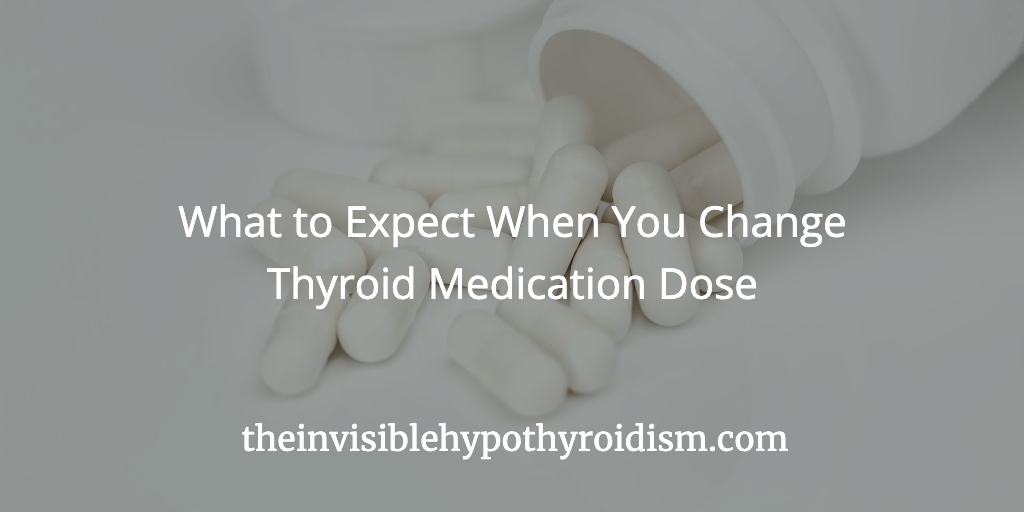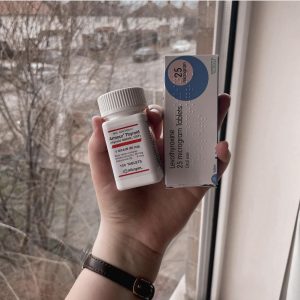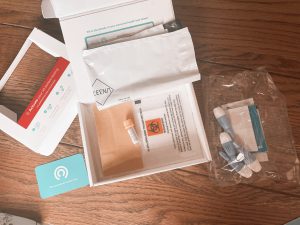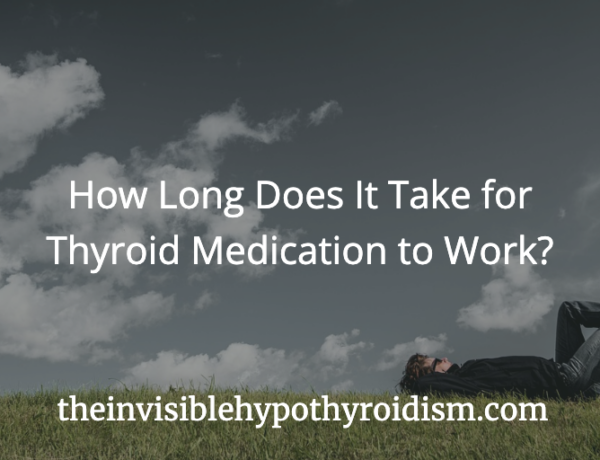Your doctor informs you that your recent blood test results indicate a need to change your thyroid medication dose.
Perhaps you need slightly more thyroid medication in order to optimise your levels, or perhaps your levels have gone the other way, too high, and now your dose is being lowered to avoid overmedication.
(read about optimal thyroid levels here and how to work with your doctor in achieving them)
Or, perhaps, you’re being switched to a different type of medication, going from Levothyroxine or Synthroid for example, to an NDT such as Armour Thyroid, or adding another thyroid medication to your existing one.
(I currently take Armour Thyroid and Levothyroxine together. Others are on a combination of Levothyroxine and Liothyronine.)
The questions I hear often include:
- How long will it take until it takes effect?
- How long until I feel better on the new dose?
- When do I need my levels testing again?
Let’s explore these.
How Long Until it Takes Effect?
How long will it be until you begin to feel better on the new dose or new medication? This can be hard to answer.
The truth is, it differs from person to person due to various factors.
I know this probably isn’t what you want to hear, especially if you’re desperate to feel better as soon as possible. Yes, thyroid symptoms such as fatigue, brain fog, muscle pain and more can be awful to experience and wanting them to improve swiftly is completely understandable.
However, whilst some people start a new medication dosage or type and feel the effects of this within a few weeks (it usually takes a least a few weeks for the medication to substantially build up in your blood), others do not see improvements this quickly.
For some, it can take months on a new dose before they really feel it is working its magic.
All of this is broken down in an easy to understand and use way in my book “Be Your Own Thyroid Advocate“. If you’re reading this very article, then you would hugely benefit from the pearls of wisdom in this book.
A part of why it can take a while may be that there are other areas requiring our attention in order to get the most out of our thyroid medication and optimise our health with hypothyroidism.
Each person’s experience with hypothyroidism and recovering their health is unique. Some people find that their first try of thyroid medication alone does very well to bringing them back to good health, but for others, they find that they either:
- require multiple medication dosage adjustments
- a switch to a different type of medication (some patients respond well to T4-only Levothyroxine or Synthroid, but do better on T3 and NDT medications)
- and / or some further help or problem solving in other areas which need support (more on this below)
It can also help to know how to take your thyroid medication correctly, so as to be getting the most out of it:
- Take thyroid medication on an empty stomach and leave at least one hour before eating or drinking anything (besides water). Not doing so can affect the absorption and effectiveness of your thyroid meds.
- Leave at least four hours between thyroid medication and any pills containing iron, calcium, oestrogen and magnesium. Not doing so can affect the absorption and effectiveness of your thyroid meds.
- You may also benefit from taking your thyroid medication at a different time of day e.g. T4 medication can be taken at night instead of in the morning, and NDT and T3 meds may be dosed twice a day instead of all in one go.
If you’re doing all of this, have been on your current thyroid medication dose for a while, have optimal thyroid levels and still feel unwell, what are the others areas that need assessing?
For a lot of us with hypothyroidism and especially autoimmune hypothyroidism, we also have these areas that require our attention:
- Adrenal dysfunction, stress management
- High thyroid antibody levels (90% of us also have Hashimoto’s)
- Vitamin and mineral levels
- Poor gut health, low stomach acid
- Sex hormone imbalances
- Food sensitivities, dietary changes, blood sugar balancing, making sure we’re fuelling our bodies well
- Over exercising / a change in exercise, learning how to manage our energy levels more effectively
- Maximising sleep, rest and recovery
- Other health conditions that can go hand in hand with hypothyroidism
which taking thyroid medication alone doesn’t address. So if you’re still unwell months after starting a new medication or new dose, and perhaps your doctor declares your test results optimal, the above reasons could be why.
If these apply to you, then how long it takes to feel better will depend on how many aspects require being addressed, how well you take control of your health and advocate for yourself and how your individual body reacts and adjusts.
It is possible to live a full life with hypothyroidism, but each person needs to piece together their own thyroid puzzle.
When Do I Need My Levels Testing Again?
When first beginning treatment for hypothyroidism, most doctors recommend testing thyroid levels again about four to six weeks after the start of the treatment, however, waiting six to eight weeks can allow the medication to finish building in the body and supply a more accurate reading.
Remember these key tips for blood tests:
- Take your thyroid meds after the blood draw
- Don’t take any biotin supplements for at least 48 hours before the blood test
- Have the test as early as possible in the morning and before eating (fasting)
- Avoid being tested while unwell
Read why these are important to follow here.
What Should be Tested?
A full thyroid panel (also known as a thyroid function test) is required to obtain the most comprehensive and accurate look at how you’re doing, as TSH alone without the other components of the thyroid panel, do not give the full picture.
Free T4, Free T3, Thyroid Peroxidase Antibodies and Thyroglobulin Antibodies are important to monitor too and give us the full picture.
Many thyroid patients find that whilst their TSH is OK, their Free T3 and Free T4 are not optimal and so they still feel unwell. If your doctor will not order the full thyroid panel, do know that it is relatively inexpensive and simple to order these tests yourself. UK thyroid patients can order them from here and a US link can be seen here.
How long have you personally noticed it take to see the effects of a thyroid medication change?
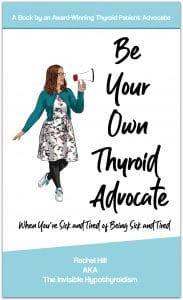
The book Be Your Own Thyroid Advocate: When You’re Sick and Tired of Being Sick and Tired, which builds on this article in detail and covers how to get your health back with hypothyroidism.
You can click on the hyperlinks in the above post to learn more and see references to information given.

